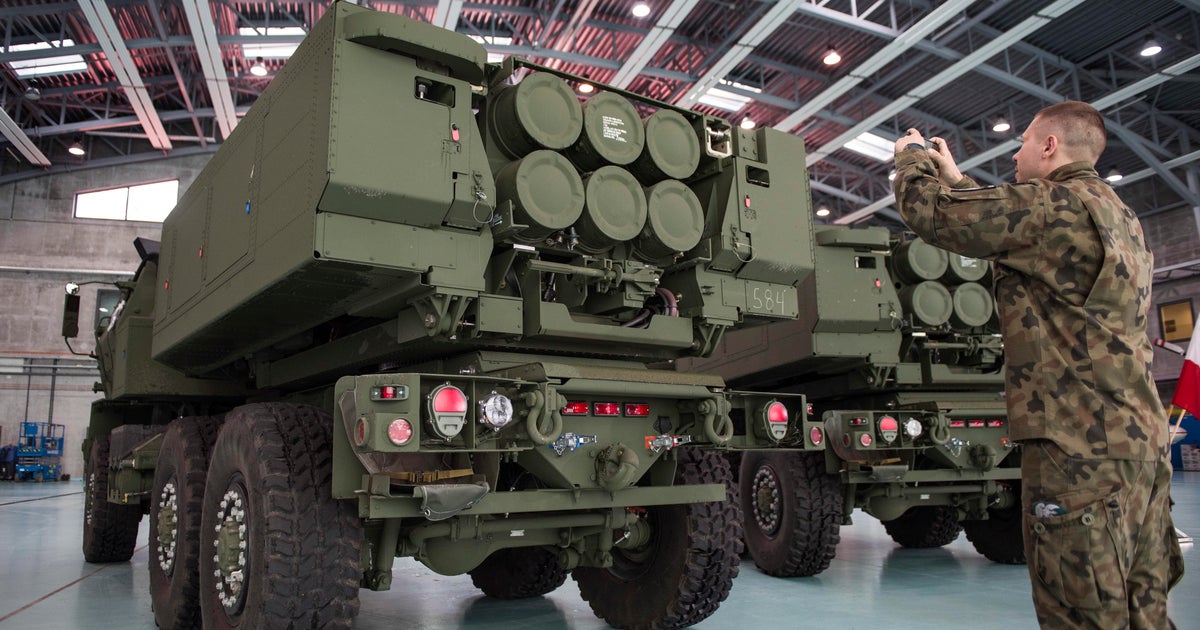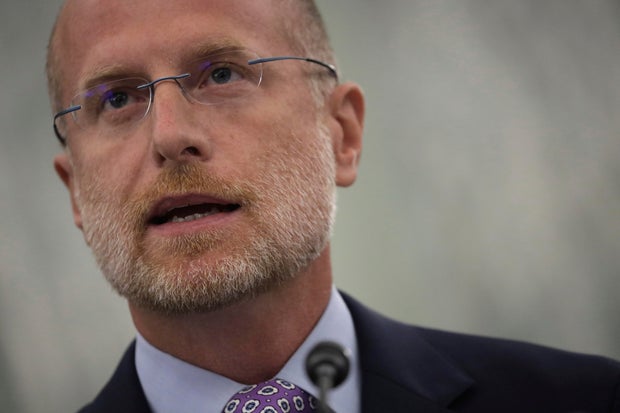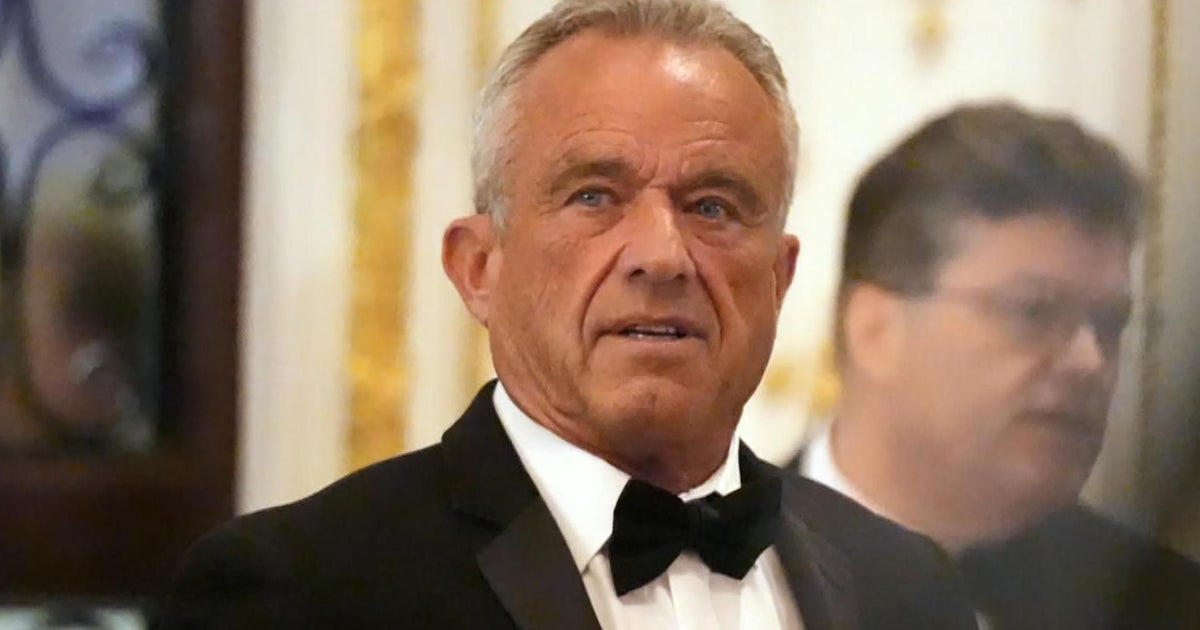CBS News
Trump taps Musk-allied big tech critic Brendan Carr to head FCC

President-elect Donald Trump tapped Republican Brendan Carr, an Elon Musk-backed critic of big tech, to lead the Federal Communications Commission (FCC), calling Carr a “warrior for Free Speech” in a statement on Sunday.
Carr has “fought against the regulatory Lawfare that has stifled Americans’ Freedoms” and will “end the regulatory onslaught that has been crippling America’s Job Creators and Innovators, and ensure that the FCC delivers for rural America,” Trump said in the statement.
Carr said on Musk’s social platform X that he was “humbled and honored” to take on the role of FCC chairman.
“We must dismantle the censorship cartel and restore free speech rights for everyday Americans,” he wrote in another post Sunday.
Alex Wong / AP
It is a phrase he has used repeatedly, posting on Friday: “Facebook, Google, Apple, Microsoft & others have played central roles in the censorship cartel,” adding that it “must be dismantled.”
Carr was already the senior Republican on the FCC, an independent agency that regulates licenses for television and radio, pricing of home internet, and other communications issues in the United States.
The five-person commission will have a 3-2 Democratic majority until next year, when Trump will get to appoint a new member, The Associated Press points out, adding that Carr has also been the commission’s general counsel and was confirmed unanimously by the Senate three times and nominated by both Trump and President Biden to the commission.
Long rumored as a contender for FCC chair, he has built an alliance with billionaire Musk — Trump’s wealthiest backer, whose Starlink satellite internet service could benefit from access to federal cash.
The New York Times reported that Starlink received an $885 million grant in late 2020 from the FCC — but that the Democrat-led commission later revoked it because the service couldn’t prove it would reach enough unconnected rural homes.
Carr “vociferously” opposed the decision, the newspaper reported.
“In my view, it amounted to nothing more than regulatory lawfare against one of the left’s top targets: Mr. Musk,” he wrote in a Wall Street Journal opinion article last month.
Carr has also publicly agreed with the incoming Trump administration’s promises to slash regulation and punish television networks for what they say is political bias.
Trump has repeatedly called to strip major broadcasters such as ABC, NBC and CBS of their licenses.
During the 2024 campaign, he singled out CBS, saying its license should be revoked after its flagship news program “60 Minutes” aired an interview with his Democratic opponent, Kamala Harris. Trump had declined to sit for a similar interview.
Trump sued CBS News, alleging the network’s “deceitful” editing of the 60 Minutes interview of Harris misled the public and unfairly disadvantaged him. In a statement, CBS News called the former president’s claims “completely without merit” and said the network intended to vigorously defend against the lawsuit.
Carr also wrote a chapter on the FCC in the controversial Project 2025 document that purported to lay out a vision for a second Trump administration, in which he also called for the regulation of the largest tech companies, such as Meta, Google and Apple.
The FCC needs to bring new urgency to four main goals: reining in big tech, promoting national security, “unleashing” economic prosperity and ensuring FCC accountability, he wrote in the document by the conservative Heritage Foundation.
Carr was a strong foe of the FCC’s reinstatement in April of landmark net neutrality rules that were repealed during the first Trump administration, the Reuters news agency notes. The Biden FCC rules were in turn put on hold by a federal appeals court.
CBS News
Hegseth lawyer says settlement paid to sexual assault accuser was “extortion”

Watch CBS News
Be the first to know
Get browser notifications for breaking news, live events, and exclusive reporting.
CBS News
Buffalo Bills end Kansas City Chiefs’ quest for undefeated season

Watch CBS News
Be the first to know
Get browser notifications for breaking news, live events, and exclusive reporting.
CBS News
Russian officials say Biden decision to let Ukraine fire missiles deep into Russia could lead to world war

President Biden’s decision to allow Ukraine to fire U.S.-made and supplied missiles deeper into Russia — a major policy shift announced over the weekend after months of intense lobbying by Kyiv — has drawn a furious response from Moscow. While there was no immediate reaction directly from the man who launched the nearly three-year war on his neighboring nation, lawmakers aligned with President Vladimir Putin in Russia said Monday that the move was unacceptable and warned it could lead to a third world war.
Mr. Biden authorized Ukraine’s President Volodymyr Zelenskyy to use American-made missiles with a range of almost 200 miles, known as ATACMS, to strike deeper inside Russian territory than the Ukrainians have to date.
So far, Ukraine’s attacks beyond the immediate border region inside Russia have been limited to non-U.S. — and much less potent— weapons such as explosive drones. ATACMS are far more destructive and harder to shoot down as they head for their programmed targets.
Attila Husejnow/SOPA Images/LightRocket/Getty
Zelenskyy’s government had been pushing Washington for permission to use the missiles for long-range attacks for some time but the Biden administration had been reluctant given concerns about potentially escalating the war.
Over the weekend, however, the calculus apparently changed. The decision came almost 1,000 days into the full-scale war in Ukraine, and with Mr. Biden about two months away from handing over the White House keys to President-elect Trump, who’s seen as far less supportive of Ukraine’s ambitions of hanging onto all of its Russian-occupied territory.
It also came as Russia hit Ukraine with a devastating missile attack, highlighting Ukraine’s desperate desire for the ability to target Russian weapons systems deeper inside the country before they’re launched, which Zelenskyy has stressed for more than a year.
Many of the Russian rockets launched Sunday targeted energy infrastructure but a ballistic missile carrying cluster munitions also struck a residential part of the northern city of Sumy, killing 11 people, including two children, and leaving more than 80 others wounded. Fresh strikes hit apartment buildings in the southern city of Odesa on Monday, killing at least eight people including a child, regional authorities said.
Residents in Sumy were targeted as they slept, and Ukrainian officials called the Sunday missile and drone salvo one of the largest Russian attacks since the start of the war.
With the change in policy from the outgoing administration in Washington, Ukrainian forces will be able to retaliate harder, reaching further into Russia than ever before. Ukrainian forces have launched drone attacks into Russian territory, including targeting Moscow, for months, but with limited effect.
Zelenskyy welcomed the change in U.S. policy, saying “strikes are not made with words… The missiles will speak for themselves.”
But Ukraine’s war-time leader also appeared to acknowledge the change in tack in Washington that Trump’s second swearing-in will bring, with a far greater emphasis expected on striking a negotiated truce than on defending Ukraine’s sovereign territory from unilateral annexation by Russia.
“It is certain that the war will end sooner with the policies of the team that will now lead the White House. This is their approach, their promise to their citizens,” Zelenskyy said in an interview with a Ukrainian news outlet, adding that Ukraine “must do everything so that this war ends next year, ends through diplomatic means.”
In Moscow, meanwhile, senior lawmaker Leonid Slutsky slammed Mr. Biden, accusing him of deciding “to end his presidential term and go down in history as ‘Bloody Joe’.”
Senator Vladimir Dzhabarov, meanwhile, told Russia’s state-run Tass news agency that Biden’s decision represented “a very big step toward the beginning of the third world war.”
The official newspaper of the Russian state, Rossiyskaya Gazeta, warned “the madmen who are drawing NATO into a direct conflict with our country may soon be in great pain.”
Putin had personally warned against the eventuality previously, issuing a warning in September that U.S. permission for Ukraine to fire American-supplied long-range missiles at his country, “would mean that NATO countries, the United States, and European countries, are parties to the war in Ukraine.”
But Putin himself has dramatically raised the stakes in the war since then, by overseeing the deployment of at least 11,000 North Korean troops to fight alongside Russian forces. They’ve joined the battle in Russia’s western Kursk region, a significant portion of which Ukrainian troops occupied earlier this year in a surprise offensive.
The parameters of the permission granted to Ukraine for the use of the ATACMS haven’t been confirmed, but according to reports, they include — and may be limited to — Ukraine using the missiles to attack Russian defensive positions in Kursk.
James Nixey, who heads the Russia and Eurasia program at the London-based Chatham House think tank, said in an analysis Monday that the change in policy from Washington was “not a game changer,” especially if it included a limitation on where Ukraine can use the ATACMS.
“The relaxation of range limits for Ukraine’s usage of US ATACMS follows the overall pattern of America’s approach to this war: to make sure Ukraine cannot inflict significant damage on Russia… but to allow small increases in hardware provision and their usage over extended periods of time,” he said. “If it is true that the authorization for usage extends only to the Kursk region (and is therefore primarily directed at North Korean troops); then, again, this fits the pattern, and means the overall effects on the war will be negligible.”








